We have more food than any of us can eat, so we spend a lot of time sharing our abundance with the firemen, single mothers, families, and the homeless. To learn more about our unique food reality, please read our previous post.
Even after sharing our resources through our outreach, we often have produce past its prime, but nothing goes to waste at the Garden of Eden. We use spoiled food to make compost. Bruised and soft fruit is made into vinegar or another Eden Knight favorite: HOMEMADE WINE!
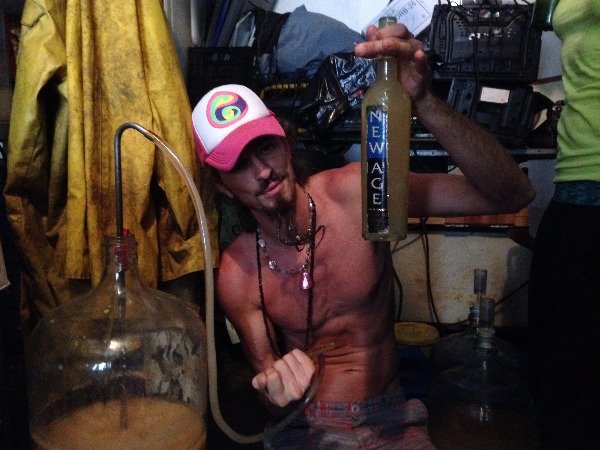
Note: This is not what most would consider wine, nor is it made from what most wine is made of. Yet sustainability is our main priority so we have to use whatever presents itself. The end result however IS very sustainable and importantly ALCOHOLIC!
Also, this is a very basic and simple process of which we really like because...well, it's easy and simple! This ultimately makes it far more sustainable.
As you get into fine wines and hard core wine makers, there is a lot more to it which translates into a LOT more time, money and less sustainability. This method will however result in a beverage with alcohol.
Even though we don't shop at stores or pay for entertainment, we still enjoy life's luxuries while living up to our honorable and sustainable standards.
Here is the first stage of our wine making process:
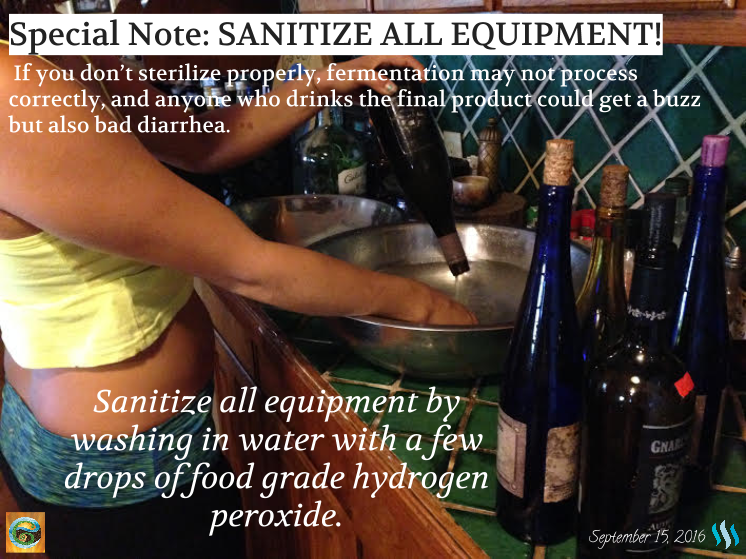
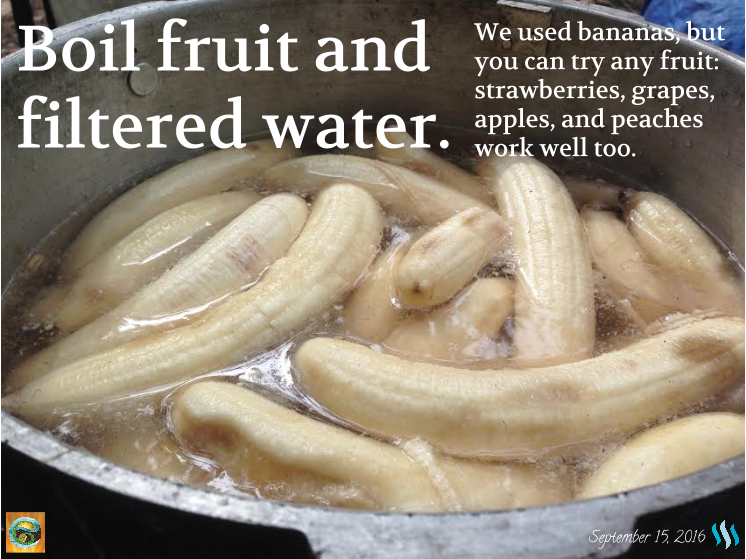

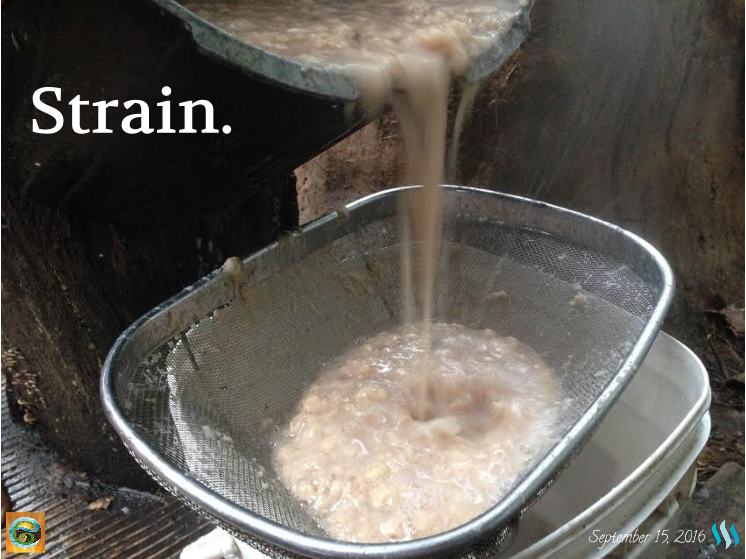
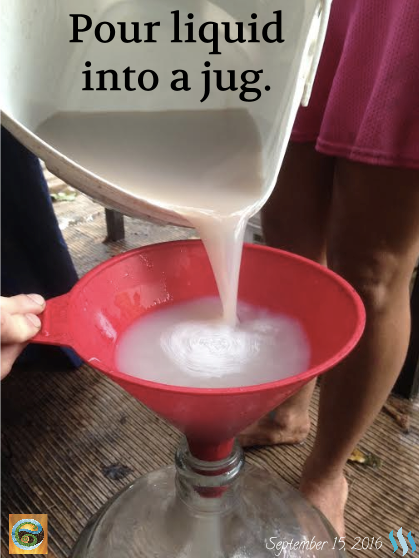


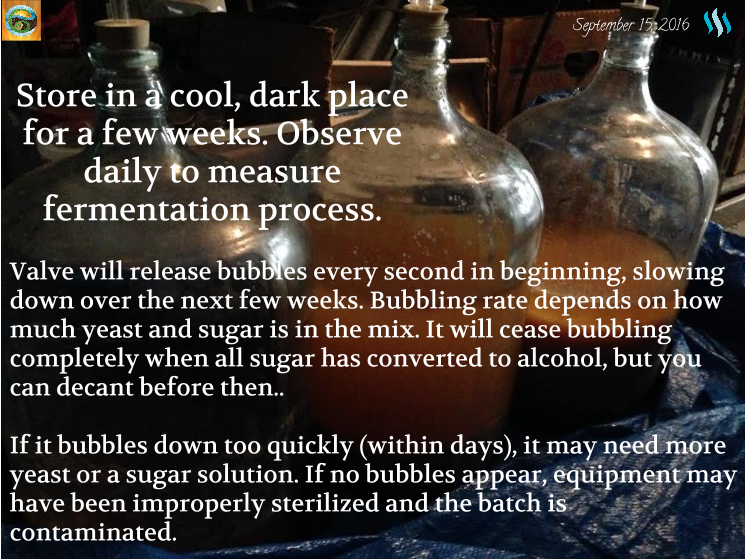
The next stage of the wine making process is to decant and bottle the wine. We'll share that info in an upcoming post!
Drink On!....Oh Wait... STEEM ON.
www.intothegardenofeden.com

Wow I've always thought about making my own beer but didn't realize you could make wine so simply. This rules! I also didn't realize you could use so many other fruits. Endless possibilities that lead to the same thing ~ a nice tasty rewarding buzz haha
It's fairly versatile! And if the batch doesn't turn out right, you can turn it into vinegar for cleaning.
Anything organic can be used to brew alcohol.
It's really so simple and rewarding. I'm surprised more people don't make wine, as so many people drink it and spend thousands of $$ on it. It can be cheap/free, easy and sustainable, and the whole wine budget could be redirected into something of great value. Thank you for sharing the awesomeness.
If one took up the hobby of wine making, they could turn out some very fine products!
I've just started experimenting with wine making. Right now, I've got a couple posts going that are highlighting the processes that I'm experimenting with. I did a lot of reading before I started, but as you know, reading and putting into action are two different things. I didn't have a proper airlock, so the main thing I'm experimenting with is alternative methods to release the carbon dioxide without turning the end result into vinegar.
Of course, we'll still use any vinegar we make. That stuff is amazing and has a ton of other uses.
Just followed you. Will check out more of your posts when I can.
Great, thanks for your support, @cosmo.crator! Yes, it's pretty cool that wine and vinegar making have a lot of overlap - "ruined" products basically just turn into something else delicious and/or useable! What are you finding for releasing the CO2?
Right now I've rigged it up. I've got a couple experiments running using masking tape with different numbers of holes, held in place with rubber bands, and the caps pushed on (not tightly screwed). I think, if the carbon dioxide gets too bad the lid'll pop off, otherwise, it should be loose enough to leak out. When I can find some decent tubing, I've got a plan for making a better airlock, possibly running it through some kind of liquid (vodka, maybe).
Awesome!
Cheers!
Very nice! May I ask why it is that you strain the fruits out before fermenting?
Thank you, great question! It's more difficult for the yeast to thrive if there's an excessive amount of fruit. Also, if you don't want a lot of particulate matter in your wine, you'll have to spend more time decanting later if you do not strain at an earlier stage.
Interesting, I've never had that problem. What type of yeast are you using? Yeast survive off of the sugars in the fruits which is what causes the fermentation - yeast (Saccharomyces) metabolize simple carbohydrates (sugars) and create CO2, ethyl-alcohol, and heat from the carbohydrate chain.
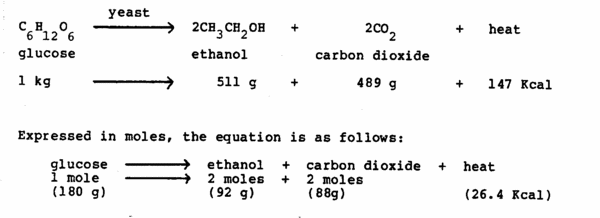
The yeast only die out if another microbe outcompetes them for food, there are excessive heats, or a lack of nitrogen. In fact, if you were to mash up your fruits and add to water and hermetically seal it away, without adding yeast or sugar, eventually it would ferment if other microbes do not take over first as there are natural yeasts on almost everything. Alchemists are suggested to use the fresh fruits and herbs directly from the land without adding yeasts to allow for the natural yeasts of that particular strain to do the workings for them.
Check this link out for further information on what causes a halted fermentation and how to prevent it: https://en.wikipedia.org/wiki/Stuck_fermentation
Great, simple wine recipe. LOVE IT! oc
It's a solid method that works for its purpose!
This is wonderful! Last year's foraging through the British countryside produced lots of vinegars, jams and jellies. I can see this year's 'crop' being even more popular!
Wonderful, would love to see how your foraging turns out!
Another great post, thanks
Thank you!
Ha ha Banana wine. Enough of that and you be swinging in the trees. I love what you guys stand for. So cool.
Thank you!
Love making this stuff!
Great! It's a fun process!
Great post, can't wait to try it. I've got a batch of mead fermenting currently.
Awesome we were just talking about making mead soon! Please share your results!
Will do. I didn't even know what it was until 3 weeks ago, 1 week before my son went back to college he asked if he could use my wine making kit along with cabernet yeast packs and some honey. Next thing you know I'm babysitting a 5 galleon jug of Mead.
I just bottled my first batch of mead and it's amazing! I'm scaling up my recipe for a 5 gallon batch now.
Excellent! How long did you let it ferment?
1 month in primary, 3 months in secondary. I'm keeping one bottle to age and drinking the others.
Thanks for that because he made it four weekends ago so it's ready for secondary.
Very exciting!
I'm saving the whole post, I think I'll get to drunk when I decide to try this
It will be a few weeks before the fruit turns to alcohol. The longer it ferments, the higher the alcohol content you will get!
Excellent! I wanted to try it. Thanks for sharing this, on how to make a wine. So interesting.
You're welcome! We would like to know how your wine turns out!
Next Step...distillation.
With our simple, easy, sustainable process, we usually don't distill our alcohol. Are you a distiller?
Nope..but I like my alcoholic beverages a little stronger than 3.2. I'm wondering if the same process could be used that is used to make "ice beer'.
Oddly enough home distillation is illegal.
The longer this brew sits and ferments, the higher the alcohol content becomes.
Unfortunately, that home distillation is illegal is not surprising. Many freedoms are restricted according to man's law.
Hahah seems like my mum has been doing it the right way all along! :D
Oh yeah way to go, Mama Wong!
https://steemit.com/alcohol/@proverbs/a-shocking-sermon-about-blacking-out-while-drunk-on-alcohol